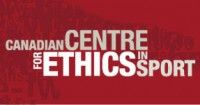November 18, 2011 – The Canadian Centre for Ethics in Sport (CCES) would like to alert the Canadian sport community that the World Anti-Doping Agency (WADA) has released the 2012 Prohibited List. This advisory note details some of the major changes, which come into effect January 1, 2012.
Under Beta-2 Agonists (S3), formoterol is no longer prohibited when taken at a dosage under 36 micrograms over 24 hours. The 2011 list dropped the prohibition on two other beta-2 agonists under certain levels (salbutamol at 1,600 micrograms over 24 hours and salmeterol at an inhaled dose). These changes permit the use of certain asthma medications at a physician-prescribed dosage. Athletes are no longer required to obtain a therapeutic use exemption (TUE) for formoterol, sabutamol and salmeterol when administered by inhalation, however, the three substances remained prohibited by any other route. All other beta-2 agonists, including terbutaline, are still prohibited and continue to require a TUE.
Beta-blockers (P2) are no longer prohibited in the following sports: bobsleigh, skeleton, curling, modern pentathlon, motorcycling, sailing and wrestling. They remain prohibited in 12 sports, including archery, golf, shooting, ski jumping, and some freestyle ski and snowboard disciplines.
The CCES would like to remind athletes and their support personnel that pseudoephedrine is prohibited in-competition. Because this stimulant is a common ingredient in cough and cold medications, athletes should diligently check all seasonal medications to avoid an inadvertent violation. For more details and a list of prohibited and not prohibited cough and cold medications, visit www.cces.ca/en/coughcold.
WADA conducts a Monitoring Program to detect potential patterns of abuse of substances that are not on the Prohibited List. Nicotine is one of several stimulants added to the Monitoring Program for 2012. For more details, click HERE.
Athletes can verify the prohibited status of their medication using the following CCES resources, all of which will be updated on January 1, 2012 to reflect the new Prohibited List.
– Global DRO (www.globaldro.com)
– CCES Substance Classification Booklet (www.cces.ca/scb)
– Email substances@cces.ca
– Call the Info Line at 1-800-672-7775
For substances that require a Therapeutic Use Exemption (TUE), athletes subject to doping control should consult the CCES or their international federation to get complete information on the application process.
– The CCES TUE Wizard (www.cces.ca/tuewizard) can help athletes find out if they need to apply for a TUE for their prescribed medication, where to submit a TUE application, and what to include in the TUE application.
– Email tue-aut@cces.ca.
Further reading:
– World Anti-Doping Agency Prohibited List web page (including the 2012 list, summary of changes, and explanatory note) HERE.
– World Anti-Doping Agency Therapeutic Use Exemption web page HERE.
![CCES 2011-12 Annual Report [P] CCES](http://skitrax.com/wp-content/uploads/2012/11/CCES-2011-12-Annual-Report-P-CCES-200x273.jpg) November 15, 2012 – The Canadian Centre for Ethics in Sport (CCES) has released its 2011-2012 Annual Report. We encourage you to read our Annual Report to learn more about the exciting initiatives that we worked on this year. As always, we welcome any comments or questions you may have.
November 15, 2012 – The Canadian Centre for Ethics in Sport (CCES) has released its 2011-2012 Annual Report. We encourage you to read our Annual Report to learn more about the exciting initiatives that we worked on this year. As always, we welcome any comments or questions you may have.




